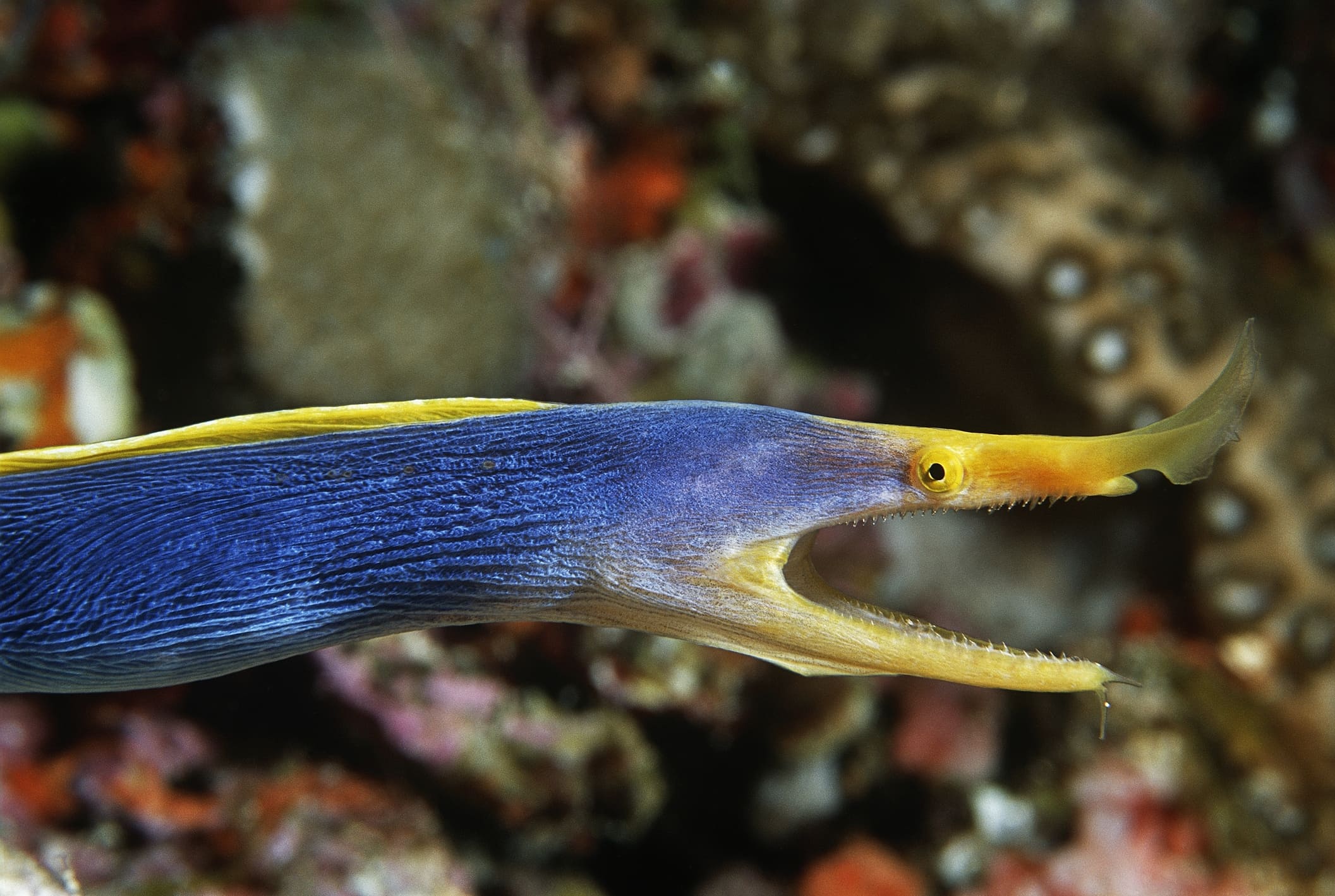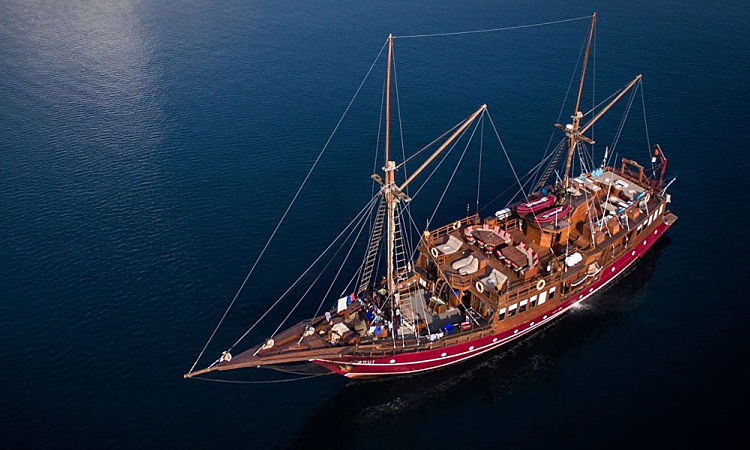
To help you plan your trip, we’ve prepared a list of basic information you’ll want to know before you book. Once your trip has been reserved, you’ll receive pre-departure information with all the details you need for your adventure.
The two major islands of Fiji are Viti Levu and Vanua Levu and the two international airports in Fiji – Nadi airport (pronounced Nandi) located in the capital city of Nadi …. and Nausori
airport located in Suva. Both are situated on Viti Levu Island.
We recommend flying into Nadi airport unless you plan to extend your stay on the eastern side of the island. The airlines flying to Nadi include Fiji Airways, Air Pacific, Qantas, American Airlines, Air New Zealand, Virgin Airlines and Jet Star. Connecting flights to Suva are available.
We recommend arriving a day before your cruise starts. Delayed flights can occasionally arrive after departure time for the boat. Should you wish to book a hotel, we can give you recommendations or make the arrangements for you.
Naia’s normal itinerary for both seven and ten-day charters starts and ends in Lautoka, just north of Nadi. Airport transfers are included both on arrival and departure, we recommend you arrive a day in advance to allow for any flight delays and to rest before your dive trip.
Passport holders of most Western and Asian countries will be issued with a visa on arrival into Fiji, which allows for stays of up to 4 months. Please make sure that your passport has validity of at least 6 months beyond your stay in Fiji. If you are travelling with medication you should bring your physician’s prescription with you.
Visa and entry requirements are the responsibility of individual travellers and we advise you to check the Fiji government immigration website for changes or updates to this information.
Passengers travelling within Fiji are not required to pay additional airport terminal fees or departure tax, all costs are included within your flight ticket.
Fiji is a tropical country with a maritime climate and the weather is fairly even all year round. The year is roughly divided into two seasons; ‘wet’ and ‘dry’. The wet season, characterized by heavy brief local showers, runs in general from November to April. Cyclones, which do occur in Fiji, are typically confined to the wet season. The dry season, May to November, has cooler temperatures with temperatures averaging 25°C (77°F) while you can expect an average of around 31°C (88°F) in the wetter months.
Water temperatures are broadly similar throughout the region. The coolest waters are usually to be found in July to October with an average of approximately 26°C (78°F). Warmer waters are common in February – June with averages of approximately 28°C (82°F). Most guests find that a 3mm shorty and possibly a rash vest is suitable for the water temperature in the warmer months, and 3mm – 5mm long wetsuit for the rest of the year. However, for guests who feel the cold easily, especially with repeated diving, we recommend bringing an extra vest / hood.
Average Water temperature:
Nov – April (Fijian summer) 80 – 84F (27 – 29C)
May – Oct (Fijian winter) 76 – 79F (25 – 27C)
Drift dives, often with strong current, over steep walls and pinnacles should be expected. Marine passage dives are famous in Fiji. The passage typically forms a deep channel, with in-coming currents attracting schools of pelagic fish. Other typical Fijian dives are wall dives with swim-throughs & overhangs covered with soft corals, providing great spots to look out for manta rays and hammerhead sharks. Frequent stops for sheltered lagoon diving offer plenty of great coral & macro opportunities.
Fiji liveaboards welcome everyone, from non-divers to seasoned divers. Please note, however, that there may be some dives offered that are not suitable for beginners. Remember that currents can be expected, typically at Nigali Passage and Taveuni … and while most dives are not deep, it is recommended to have experience beyond 18 meters. Your cruise director will be able to advise you on the suitability of each dive
The best time to go to Fiji is whenever you have the chance. This is Fiji we’re talking about!
Peak travel season is probably between July and September, when you can pretty well count on the weather being dry and sunny. However, the best diving is probably between April and October. As the diving year-round is good and the islands are always fabulously beautiful, our only caveat is to exercise caution regarding travel during the cyclone period.
It is recommended that each buddy team dive with a SMB in order to signal to the dive tenders you are ready to surface. Reef hooks are not a necessary item, though divers may find them useful in some areas. Since some of the domestic airline carriers in Fiji have strict check-in luggage limits, all liveaboard yachts provide most scuba rental equipment. Please pre-book rental equipment upon booking your cruise, as it is subject to availability.
As far as what to bring with you, light clothing and a sweater for cooler evenings is sufficient for Fiji. Guests are advised to bring their own personal toiletries.
No specific vaccinations are required to visit Fiji, but it is recommended that travelers are up to date with vaccinations against hepatitis A and B as well as typhoid. When traveling to any new part of the world, it’s advised to drink bottled water. The sun is also a factor to consider in Fiji, bring sun screen and long sleeved shirts.
Dengue fever does occur in wet areas during the wet season. Visitors should exercise caution when travelling inland – cover up and use repellent sprays or cream. Also, there have been some reports of the Zika virus in Fiji. Please check with the CDC (Center for Disease Control – https://www.cdc.gov/) or other health authority for current information.
For diving related emergencies there are hyperbaric facilities in Suva, Viti Levu. As air evacuation from the liveaboard may be required in case of medical emergency, diving specific insurance is a must.
Current studies show that you should wait at least 24 hours after multiple days with repetitive diving before flying. Please keep this in mind before you book your onward international or domestic flights.
The local currency is the Fijian Dollar (FJD). The vast majority of all hotels, resorts, shops and restaurants will accept a wide range of credit and debit cards. Please note that in some cases you may be asked to pay a service charge for credit card handling. This can range from 3.5 – 6.0%. There is a currency exchange counter within the baggage claim hall at Nadi Airport. Guests are advised to make any currency exchanges prior to leaving the terminal building.
We recommend that you have cash on hand for port fees and any extras you may wish to buy.
Each guest must pay a port fee on board and this, plus any purchases made aboard the yacht including equipment rental, are subject to Fiji government taxes. If the yacht visits other park areas not normally on the itinerary, there may be an additional small park fee.
Travel insurance : We strongly advise our guests to obtain comprehensive travel insurance to cover against unforeseeable events including personal & business impediments, illness, travel delays and missed flight connections. We can recommend excellent and inexpensive insurance options which will cover virtually every scenario.
Please don’t allow yourself to be one of the unfortunate travelers who are without coverage for unexpected circumstances. Insurance is a small slice of the pie in terms of overall travel costs and can save you from serious financial losses.
Dive insurance : Dive insurance is required by the liveaboards. Do not confuse regular travel medical and/or travel insurance with diving-specific insurance such as DAN (Divers Alert Network) or Dive Assure. This type of insurance will cover all of your scuba diving and snorkeling activities, including the costs for recompression chamber treatment and emergency air evacuation. These are not covered by the average travel insurance.
Dive Assure can also set you up with a travel insurance plan which includes general travel insurance, including trip cancellation …. plus full dive coverage.
Our tailor made Liveaboard Finder. It’s the easiest way to see the best offers, check availability in different destinations and get diving quickly!
